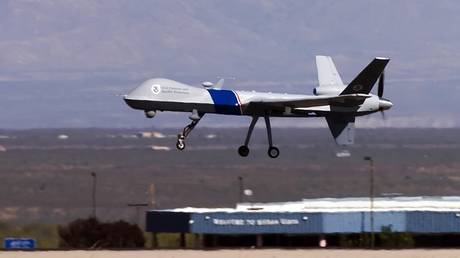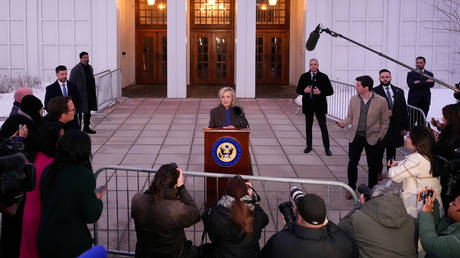
The documents do not specify which pipeline was infiltrated and Canadian operators have not confirmed any significant hacking incidents
A Russian government-connected hacktivist group has reportedly claimed to have breached the networks of a Canadian gas pipeline, according to a recent piece by the New York Times.
Citing the leaked Pentagon papers, the outlet claims that the classified documents contained an exchange between unspecified Russian Federal Security Service (FSB) officers and a cybercriminal group called ‘Zarya’.
In their communications with the FSB, the hackers allegedly shared screenshots in February that showed they had the capability to increase valve pressure, disable alarms and make emergency shutdowns of an unspecified gas distribution station in Canada.
According to the documents, the FSB officers anticipated that “a successful operation would cause an explosion at the gas distribution station” and were “monitoring Canadian news reports for indications of an explosion.”
The New York Times reports that it has been unable to verify any of this intelligence independently, while the Canadian Communications Security Establishment, which is responsible for Canada’s foreign intelligence gathering and cybersecurity, has refused to comment on any specific incidents.
Canada’s CBC News and the Canadian Press have also not been able to verify the claims, but noted that two pipeline operators – TC Energy and Enbridge – have stated that their infrastructure had not been compromised by any hacking attempts.
The White House, National Security Council and Department of Homeland Security have all declined to comment on the pipeline claims, while National Security Council spokesman John Kirby suggested on Monday that some of the documents in the leaked tranche “have been doctored.”
The batch of sensitive documents appeared online in late February and early March on the chat platform Discord, but the first reports on the leaks did not emerge until last week.
Western media outlets have reported that the Biden administration is currently in “crisis mode” and that the Pentagon has launched an internal investigation into the leak, which it says poses a “very serious risk” to Washington.
A number of officials, however, including from US-allied countries, have cast doubt on the authenticity of the leak, pointing to a number of inconsistencies and factual inaccuracies. Ukraine, which is heavily featured in the papers, has even suggested that the leak is a Russian ploy to derail Kiev’s planned spring counteroffensive.




